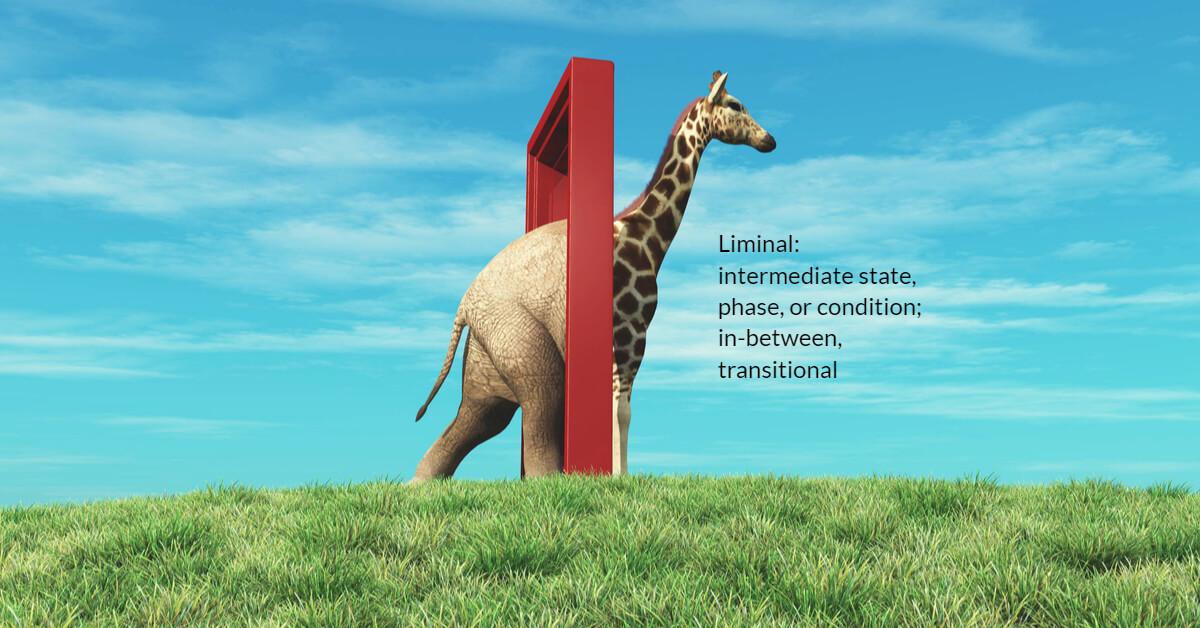As a former English teacher, I love words, especially those interesting sounding ones that live in the shadows of our everyday usage.
“Liminal” is one of those words that I’ve seen popping up more and more lately, it’s easy to see why. The second definition in the Merriam-Webster dictionary reads: “of, relating to, or being an intermediate state, phase, or condition: in-between, transitional.”
Yeah. That.
We’re no doubt in a “liminal state” right now when it comes to so many aspects of our lives and of our stories. We’re moving from one world to some other, yet unknown, when it comes to the environment, politics, the way we do business, and, yes, education. One of the metaphors we use in our work at the BIG Questions Institute comes from the Indian activist Arundhati Roy, who writes that the pandemic “is a portal, a gateway between one world and the next.” We’re in the portal right now.
Last week in the Harvard Business Review, Laura Empson and Jennifer Howard-Grenville took a deep dive into the anthropological aspects of liminal and found three core characteristics. I want to read these with an education lens.
First,
“it…


